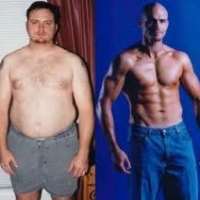Dieting is Timing
The information about dieting presented here will do one of two things: either it will reinforce what you know about dieting or it will teach you something new. Both are good outcomes.
You begin your typical day with a croissant and a coffee. By mid-morning, you're a bit overwhelmed with work and so you eat some potato chips. At lunch, you're starving again so you eat a few slices of pizza and more potato chips. By mid-afternoon, you're bored again, so you decide to sneak in a candy bar. Dinner means a multi-course meal of steak, potatoes with sour cream, some pasta, and strawberry ice cream. Right before bed, you decide to sneak in another candy bar.
Of course, there are obvious problems with this kind of diet. But, aside from the questionable nutritional value of the food, there's also the problem of the timing of the meals and snacks. When dieting, it's not only a question of what you eat. When you eat also matters. But, if you've been conditioned to have three square meals a day and as many snacks as you want, how can you go about changing your behavior?
To begin with, you should only eat when you're actually hungry. This means you should not eat out of boredom, sadness, fear, or for any other emotional reasons. Food exists as fuel to help rev up your body for the challenges you face each day. You should not look upon food as a means of comfort or a path to love.
At times, you may notice that you reach for a snack because you just want a break from your routine. Maybe your work is getting to you, or your children are trying your patience. You have to recognize the fact that eating for emotional reasons is a learned behavior; so, in order to reverse course, you simply have to unlearn the behavior. It may take some time, but eventually you'll find that you are able to limit your eating to those times when your hunger pains start.
But you should also know that just because a person eats often, that does not necessarily mean that he or she is overeating. A number of reputable diet plans recommend eating five or six small meals a day in order to keep your metabolism humming and to ward off hunger. However, these meals should be carefully planned in advance. Otherwise, you could find yourself packing on the pounds because of your frequent snacks. For instance, you might plan to eat bran cereal for your first meal of the day, a bowl of strawberries for your second, some light turkey on whole wheat bread and some apricots for your third, a cup of yogurt for your fourth, some low-fat cheese and crackers for your fifth, and lean roast beef, green beans, and jello for your sixth meal of the day.
When should you eat your small meals? They should be scattered throughout the day-no more than four hours apart. In this way, you can keep your metabolism up, enabling you to burn calories consistently throughout the morning and afternoon. Generally speaking, however, you should only eat when you're actually experiencing hunger.
A survey conducted in 1999 found that 60 percent of Americans skip breakfast. However, you should be aware of the fact that eating breakfast can be a key to losing weight. If you don't skip breakfast, you'll find that you'll burn calories faster, leading to weight loss.
Try to avoid eating late-night snacks. This is because your body will probably store the calories rather than burn them off. Again, your snacking may not be the result of actual hunger but simply because you have nothing better to do at that time of the night. Simply changing your nightly routine may help you to keep away from food at the midnight hour.
No doubt, it can be quite difficult to change your eating routine. You may have eaten three large meals all your life, and you find it difficult to stop. However, just a few subtle changes will help to transform both your day-and your appetite. If you find yourself reverting to your old routine, forgive yourself, and start again. If you are kind to yourself, it's more likely that you will eventually be able to find a diet plan you can live with-one that will not only help you lose weight, but keep you satisfied as well.
Now that wasn't hard at all, was it? And you've earned a wealth of knowledge, just from taking some time to study an expert's word on dieting.
Related Articles
-
Here Are Some Healthy And Safe Weight Loss Methods
When attempting to lose weight it is very important to ensure that you
-
The best natural Ways to lose fat
Losing weight can be a frustrating and sometimes depressing endeavor.
-
The Reality About Weight Loss Plateaus
Right after months of ingesting healthy and doing exercises, you’re
-
Diet Solution Program Ebay
A woman who has used this Diet Solution suggested, The Diet Solution P
-
Cheat Your Way Thin Review - Diet and Weight Loss
Cheat Your Way Thin is a revolutionary new weight loss book by bestsel
-
Why You Don’t Have To Be Hungry To Lose Weight
Do you dread the prospect of being hungry all the time just becaus
- DON'T MISS
- Put Outdated Diets to the Side and Try Out This Modern Rule Instead!
- Does The Fat Burning Furnace Actually Work
- Finding Your Way To A Healthy Lifestyle
- How To Reduce Weight Naturally - Warpspeed Fat Loss
- Effectively Lose Weight ?Lets Work on That
- Goodbye Holiday Weight Gain! Losing Weight After The Holidays
- Fat Loss Diets - Fast Fat Reduction
- Health is the important concern in todays scenario
- Fat Burning Foods To Eat
- Supporting Your Weight Loss Goals




